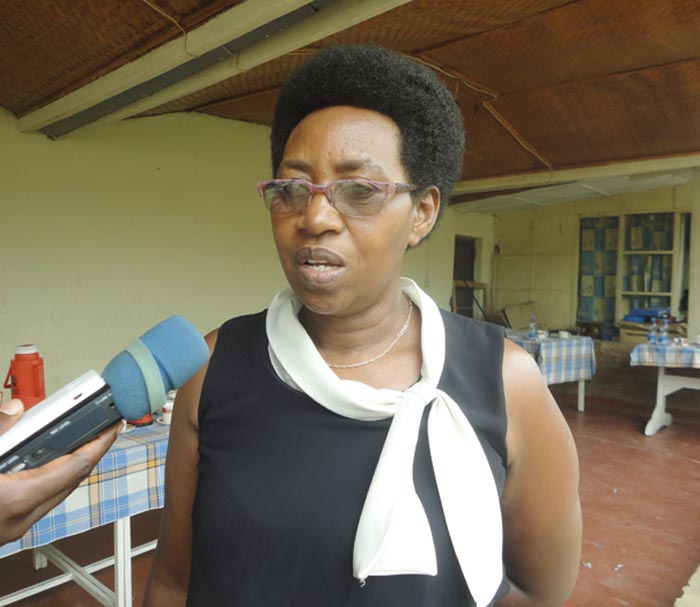President Pierre Nkurunziza blamed war for the decreasing level of education in Burundi. The syndicates of teachers blame the government themselves.-J.BerchmansSiboniyo
These comments came at a public conference held in Ruyigi Province on Friday 19th December by Nkurunziza in order to listen to, and to answer questions from journalists and the population.
When asked to explain the devaluation of education in Burundi, the President places the blame firmly with the civil war. “I know of students who threatened their teachers, sometimes even with death to ensure elevated marks.”These students finished their studies and are now teachers. How can we expect much from them when they themselves didn’t rightfully earn their positions?”He stated that today’s students seldom read books, and that teachers do not carry out their duty efficiently.
Eulalie Nibizi, the Chairwoman of the Syndicate of Teachers in Primary Schools (STEB) rejects the reasons given by the Head of State. She blames the government for the devaluation. “Many other countries also experienced civil wars but the value of their education has not necessarily decreased as a result.
The government often enforces new reforms, without consideration of their feasibility.”She provides the example of the introduction of EcoleFondamentale, a teaching system based on 9 years of primary school instead of 6 years in the previous model. This system introduced new courses including entrepreneurship, music and Swahili.
Nibizi finds it shocking that the government institutes teaching a language without adequate provision for teachers. Here, she provides an example of Kiswahili and English lessons. “The two languages have been included in the teaching programs of primary schools even though most teachers have never been trained in how to teach the languages.
Concerning the fact that students don’t read books, Nibizi says that many schools have neither libraries nor laboratories. “Even where the physical spaces do exist, they are empty. In many schools ten students share a single book and have no ability to take a book home. How can they read!”she laments.
Nibizi adds that teachers are so badly paid that other governmental workers stigmatize them. Some teachers don’t even call it a job – when they are asked if they have employment, they tend to say, “No I am still teaching.”
Teachers should be good looking, well dressed and not hungry and anxious about what to eat. Unfortunately many of them are actually starving. They are frequently forced to leave houses they rent because they don’t afford to pay their monthly rents.
Emmanuel Mashandari, the Chairman of the Syndicate of Secondary School Teachers (CONAPES) says that the Head of State evaded the question when he was asked whether the way in which teachers are treated is a contributing factor to the decreasing of knowledge in schools.
In his opinion, the government is showing a poor example to the population. He indicates that the government lied to teachers by promising salary harmonization for all the workers of State. “We are not surprised that Nkurunziza evaded this question because he has lied many times.”
Mashandari warns that teachers may go on strike unless they are treated like other workers of the government. He reports that they are waiting for the government to handle the issue in a satisfactory manner. ‘We wanted to give time to the government to cease their lies. Our patience cannot last forever. We will speak out and act for our rights in lawful ways.’
—————————————————————————————————–
Salaries of teachers per month in Burundi.
Primary school teachers: Less than 60 USD
Secondary school teachers: Less than 93 USD
Other workers of State’s salaries depend on the ministry they are working for. Allowances, work mission fees, trainings and seminaries increase their salaries. Teachers don’t have those opportunities.




















 IWACU Open Data
IWACU Open Data

